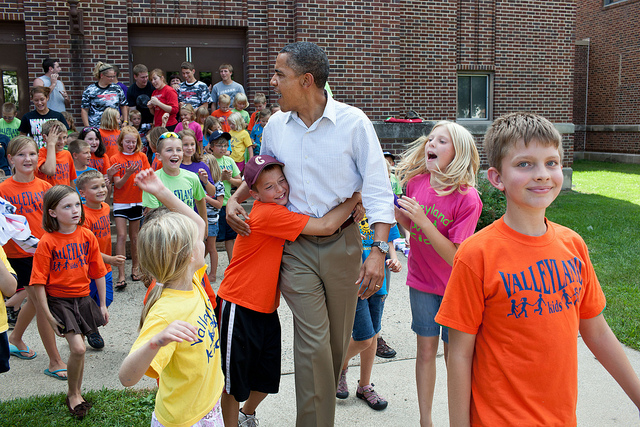Three Hot Topics in the Argument Around Free Speech and Student Rights

The practical interpretation of the First Amendment is a contentious topic across the nation, year after year. In schools, the issue crops up commonly in the form of disputes of what can be read and said. Time and time again, teachers must deal with how the First Amendment dispute affects:
1. Student access to books.
The 1982 case of The Board of Education, Island Trees Union Free School District No. 26 v. Steven A. Pico is an example of a case dealing with student rights to gain access to books. This case involved the suitability of books in a high school library and the school district’s school board’s suggestion that certain books with inappropriate content be removed from the library. This suggestion followed a conference of a politically conservative organization of parents in New York. The case clearly grappled with balancing the right of students to access books in the school library with the school board’s right to decide on which books to introduce and which books to leave out of the library. The final decision favored the school board, and nine books were removed from the library. These books included Best Short Stories of Negro Writers: An Anthology from 1899 to the Present, edited by Langston Hughes; Down These Mean Streets, by Piri Thomas; Go Ask Alice, of anonymous authorship; Soul on Ice, by Eldridge Cleaver; A Reader for Writers: A Critical Anthology of Prose Readings, by Jerome Archer and Joseph Schwartz; Slaughterhouse Five, by Kurt Vonnegut, Jr.; A Hero Ain’t Nothing but a Sandwich, by Alice Childress; The Fixer, by Bernard Malamud; and Naked Ape, by Desmond Morris.
The U.S. Supreme Court fully recognized the role of school authorities in deciding what to teach students and suggested that the matter be kept out of the courts. But the verdict noted that any kind of suppression of ideas advocated by political groups would not be tolerated. One could say that this case fell into this category, because action was taken following the list, which was forwarded by a political organization. This created an air of ambiguity in the matter. The court ultimately decided against the removal of all the books, and only a few very controversial ones were removed. In short, the stand on avoiding the suppression of ideas by any means was adhered to.
2. Student rights to free speech.
Apart from the Fourth Amendment, the most important amendment pertaining to student rights is the First Amendment. The Free Speech Clause prohibits any new law that might curb the students’ freedom of speech. In practice, the issue was illustrated through Tinker v. Des Moines Independent School District. The case involved the sensitive issue of the conflict in Vietnam. Certain students decided to put forth their objections to the war by wearing black armbands. This apparently was not received well by school authorities, and they decided to take the strict action of suspending any student who wore a black armband. The U.S. Supreme Court’s ruling on the matter was groundbreaking, and the school’s stand was criticized outright. At the same time, the court ruled that the right to free speech could be exercised, provided it did not disrupt the educational process in any way. Any protest or activity that interferes with normal school activities, or disrupts the peace of the school, even in the slightest manner, can be curbed lawfully.
This form of censorship was legitimized by law on the basis that it would ultimately be in the student’s favor, because it would help him understand other students’ feelings and have more respect for them. In the 1988 Hazelwood School District v. Kuhlmeier case, for instance, the court ruled that school administrators have every right to control and check the content published in school-sponsored newspapers and magazines. The justification given was that these form a part of the curriculum and everything that could possibly influence students deserves to be scrutinized by school authorities. The case involved a newspaper published by the journalism class at Missouri’s Hazelwood High School. The articles published discussed issues such as divorce and pregnancy, content school authorities determined was inappropriate for high school students. Authorities also feared that the fictitious names used in the articles were not sufficient to guard the privacy of the students whose opinions were published. The court concurred.
While students are, without a doubt, endowed with freedom of speech by the First Amendment, this does not mean that they can behave in any manner they please. It’s very much within the jurisdiction of the school authorities to prevent or prohibit students from indulging in activities that may potentially pose a threat to a school environment conducive to learning.
The Tinker case discussed is pertinent here. The school was denied the right to prevent students from wearing black armbands as a mark of their protest, but at the same time, the school was free to suspend or take suitable punitive action against students who acted in a manner that was disturbing the positive learning atmosphere. If the school caught students indulging in activities such as igniting political commotion or voicing their opinions in a manner that disrupted teaching and learning, the school could justly suspend them.
Similar decisions were made in the case of the Bethel School Dist. No. 403 v. Fraser, in which the court took the clear stance that students’ use of fighting words and threats was prohibited in schools. The category included racial epithets, lewd and offensive speech, immature conduct, or true threats that could possibly lead to harming another person.
Exercising free speech is not just limited to student behavior. It extends to the realms of student newspapers, plays, and literature. While students do enjoy their due rights, teachers have some control. The following falls within the school’s authority to curb freedom of expression that may be disruptive to the learning environment:
- Teachers or school authorities are required to collect concrete proof against students indulging in indecent speech, potential disruption, or other unacceptable activities before taking action against them.
- Students must be provided with due process when any sort of punishment is involved.
- The banning of indecent, inappropriate, and unacceptable material is acceptable by the school when such material contradicts the mission of the school.
- School authorities have the final word on deciding the time and place of the distribution of certain materials.
- The school newspaper must be run subject to legally defensible guidelines.
- The nature of the school newspaper must be decided beforehand. If it’s decided to be an open forum rather than a curriculum-based letter, the students should be provided with due rights to express their opinions.
- A well-established procedure for reviewing newspaper submissions should exist to make the process smoother.
3. Student prayers.
In 1996, a New Jersey Highland Regional High School student sued the school because of its decision to have a prayer before graduation. The court found that it was unjust to violate the religious rights of students who did not want a prayer at their graduation. In Doe v. Madison School District no. 321, an Appeals Court ruled in favor of a policy of the Madison School District of Rexburg, Idaho, allowing the top four graduating students to make speeches that included recitation of prayers. The difference here was that the control of religious content was in the hands of the individual students, and not the school. The court ruled that because selection of student speakers was based on their academic standing, complete discretion should be awarded to the students to choose the content of their speech.
Another important question related to religious rights is whether it’s legal to allow religious groups to use public school facilities to propagate their religious beliefs. Answering this question is not an easy task. To better understand the concept, let’s take a look at current practice. New York City allows the rental of schools for community activities, which include religious discussions. But the use of school facilities for religious services is prohibited. The court validated this stance by asserting the premise that public schools wish to distance themselves from being identified with a particular religious service and appearing to be advocating one religion or another.
In another instance, the Supreme Court ruled against having student prayers at football events because that violated the Establishment Clause. A particular school district’s decision to conduct a student vote on the issue didn’t meet with the approval of the law. The court maintained that it couldn’t allow such sponsorship of any kind of religious activity. The decisions reached in these court cases shouldn’t lead us to believe that the law is completely against the practice of student prayers. Provisions are made to safeguard the interests of those who practice religion. A section of the No Child Left Behind Act of 2001 entitled “School Prayer” ensures that the U.S. Department of Education plays an active role in making sure that school districts allow for school prayer within the boundaries of the law.
The issue of religion in schools also emerged around the question of whether or not public schools were propagating a religion—that of secular humanism. The issue was raised by those of a different religious allegiance, who contended that they found such a propagation offensive. This was clearly a case of affiliation to strongly held religious values. Christian schools with core fundamentalist Christian values were at the center of the conflict. When state lawmakers required Christian schools to conform to minimal education standards set up by the state, the schools complained that following state curriculum guidelines would be tantamount to teaching secular humanism to their students. Christian schools maintained that the Christian fundamentalist dictum relied heavily on the authority of the scriptures, and not on secular humanism, which was the religion of public schools. The law stood firm. The state minimum standards had to be included in all schools accredited by the state.
Do you know how the free speech argument plays out in your district? Check with your administrators on what current policy is. As an educator, it is your job to make sure that your teaching upholds the highest constitutional standards and allows the greatest access to knowledge.




